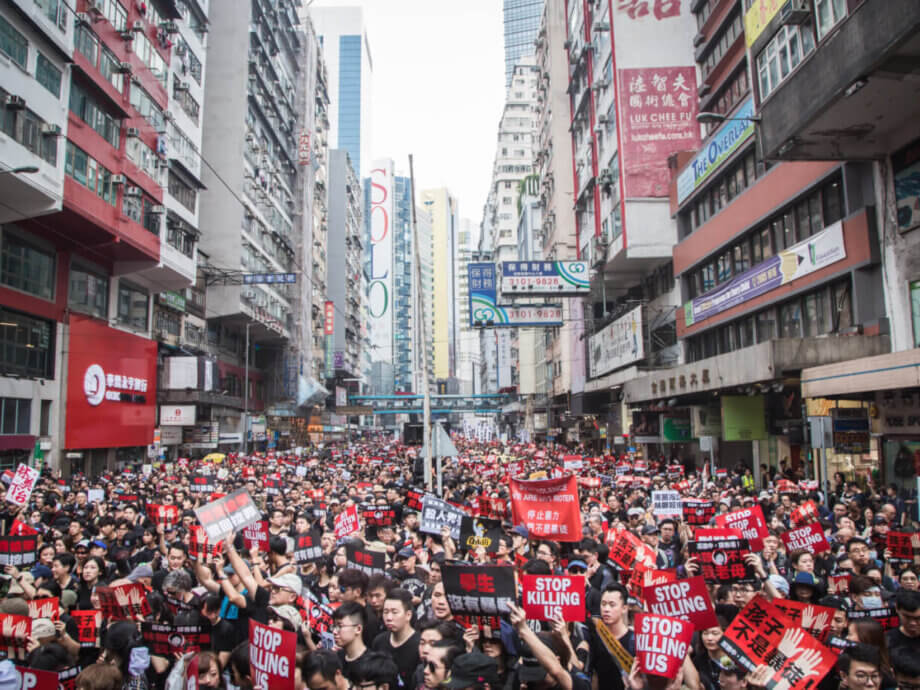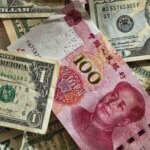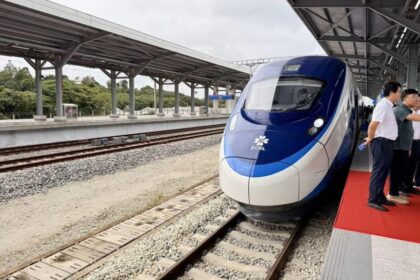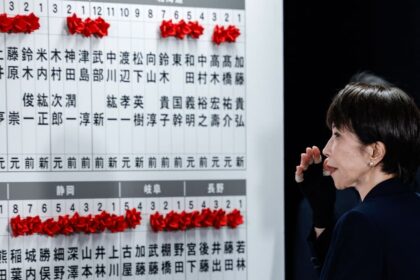Introduction: Human Rights in East Asia Under Scrutiny
Recent international reports have cast a stark light on the state of human rights in Hong Kong, revealing a pattern of deterioration that is drawing the city ever closer to the repressive standards of mainland China. In contrast, Taiwan continues to stand out as a regional leader in the protection and promotion of civil liberties. This article synthesizes the latest findings from the Human Rights Measurement Initiative (HRMI), local and international human rights organizations, and expert commentary to provide a comprehensive analysis of the current human rights landscape in Hong Kong, China, and Taiwan.
- Introduction: Human Rights in East Asia Under Scrutiny
- Understanding the Human Rights Measurement Initiative (HRMI) and Its Metrics
- Hong Kong: From Economic Success to Human Rights Regression
- China: The Baseline for Repression
- Taiwan: A Regional Leader in Human Rights
- International and Local Responses: Calls for Action
- Broader Implications: The Future of Rights in the Region
- In Summary
Understanding the Human Rights Measurement Initiative (HRMI) and Its Metrics
The Human Rights Measurement Initiative (HRMI) is a New Zealand-based organization that evaluates countries’ human rights performance using a set of 13 indicators, grouped into three main categories:
- Quality of Life Rights (e.g., health, education, housing)
- Physical Integrity Rights (e.g., freedom from arbitrary detention, torture, extrajudicial killing)
- Empowerment Rights (e.g., freedom of expression, assembly, association, participation in government, religious freedom)
Each country is scored on a scale of 0 to 10, with higher scores indicating better protection of rights. The latest HRMI report, along with corroborating research from Amnesty International and local human rights groups, highlights a worrying trend: Hong Kong’s scores are falling, especially in areas related to civil and political freedoms.
Hong Kong: From Economic Success to Human Rights Regression
Hong Kong has long been recognized for its economic prosperity and high standard of living, with a per capita GDP of over $50,000 USD in 2023. However, recent years have seen a sharp decline in the city’s human rights record, particularly since the implementation of the National Security Law in 2020 and the subsequent passage of the Safeguarding National Security Ordinance in 2024.
Physical Integrity Rights: Arbitrary Detention and Erosion of Legal Protections
According to the HRMI, Hong Kong’s score for physical integrity rights is now 7.4 out of 10, ranking fifth among 37 surveyed countries. While this may seem moderate, a closer look reveals significant problems:
- Arbitrary Detention: Hong Kong’s score for freedom from arbitrary detention has dropped from 4.7 to 4.5, indicating a worsening situation. This is the lowest among the subcategories and reflects a growing pattern of detentions without due process, often justified under the guise of national security.
- Torture and Ill-Treatment: The city scores 6 out of 10 for freedom from torture, placing it at the upper limit of the “poor” category. While Hong Kong does not have the death penalty or widespread forced disappearances, the use of harsh treatment and intimidation tactics has increased.
Patrick Poon, HRMI’s East Asia affairs lead, explains:
“The Hong Kong government is using national security as a pretext to further tighten control and continue arrests, aiming to create a chilling effect.”
Experts agree that Hong Kong’s overall performance in civil and political rights continues to deteriorate, increasingly resembling the situation in mainland China.
Empowerment Rights: Shrinking Space for Civil Society
Empowerment rights, which include freedoms of assembly, association, expression, and participation in government, have seen the most dramatic decline in Hong Kong. The city’s overall score in this category is just 2.4 out of 10, barely above China’s 1.9, and among the lowest globally.
- Freedom of Assembly and Association: Hong Kong scores 2.5, ranking near the bottom. Large-scale protests and commemorative events, such as the annual June 4th vigil, have been effectively banned for four consecutive years. Police use informal channels and preemptive checks to discourage applications for public gatherings, creating a “silent ban.”
- Freedom of Expression: The score is only 2.7, with media outlets facing increasing censorship, self-censorship, and legal threats. The government has removed books from public libraries, restricted access to information, and prosecuted journalists under vague national security charges.
- Political Participation: At 2.4, Hong Kong’s score for participation in government is among the lowest, reflecting the near-total exclusion of opposition voices from the political process.
- Religious Freedom: This is the only area where Hong Kong significantly outperforms China, with a score of 6.7, but even here, there are growing concerns about state interference.
Legal and Administrative Suppression: Beyond the Obvious
The Hong Kong Human Rights Information Center’s 2024 report details how the government uses not only overt legal measures but also administrative and technological tools to suppress dissent:
- Administrative measures such as tax audits, venue restrictions, and selective law enforcement are used to stifle NGOs, journalists, and civil society groups.
- Technological surveillance, including facial recognition and online monitoring, has expanded, with cross-border repression targeting overseas Hong Kong communities.
- The judiciary, once seen as a bulwark of rights, is increasingly marginalized in national security cases, with legal aid and public interest litigation facing new hurdles.
As a result, the city’s once-vibrant civil society is under sustained pressure, with many organizations forced to disband or operate in exile.
China: The Baseline for Repression
China’s human rights record remains among the worst in the world, with HRMI scores consistently at the bottom of the global rankings. In the area of physical integrity rights, China scores just 2.3 out of 10, reflecting widespread arbitrary detention, torture, forced disappearances, and extrajudicial killings. Empowerment rights are similarly dismal, with a score of 1.9.
Human rights defenders, journalists, and critics of the Communist Party are at particular risk, facing imprisonment, harassment, and even violence. The international community continues to express concern over China’s treatment of ethnic minorities, such as Uyghurs and Tibetans, as well as its export of repressive tactics to Hong Kong.
Taiwan: A Regional Leader in Human Rights
In stark contrast to Hong Kong and China, Taiwan has emerged as a model for human rights in East Asia. The HRMI report gives Taiwan a score of 7.9 for physical integrity rights—the highest among surveyed countries—and 7.3 for empowerment rights, second only to the Cook Islands. Taiwan’s high scores are attributed to:
- Absence of the Death Penalty: Taiwan has not carried out executions in recent years and is moving toward abolition.
- Respect for Civil Liberties: Freedom of expression, assembly, and association are robustly protected, with vibrant media and active civil society organizations.
- Political Participation: Democratic elections and open political competition are the norm, with high levels of public engagement.
- Religious Freedom: Taiwan scores a perfect 10 in this category, reflecting a pluralistic and tolerant society.
Jia-Wei Pan, HRMI’s East Asia affairs lead, notes:
“Taiwan’s high scores reflect the fact that most people enjoy political freedom and basic human rights, and that citizens’ empowerment is relatively high compared to other countries.”
Pan attributes this to Taiwan’s successful democratization and the institutionalization of checks and balances. He also cautions that China’s scores may be artificially high due to data limitations, as information is often difficult to obtain from the mainland.
International and Local Responses: Calls for Action
The deterioration of human rights in Hong Kong has prompted strong reactions from both local and international actors:
- Amnesty International’s 2024/2025 Global Report highlights the global trend of shrinking civic space, with Hong Kong cited as a key example of how governments use national security as a pretext for repression.
- Local human rights groups in Hong Kong have issued detailed recommendations, urging the United Nations and other international bodies to strengthen monitoring and accountability mechanisms. They also call for the repeal of the National Security Law and the Safeguarding National Security Ordinance, and for the release of political prisoners.
- Taiwanese civil society has responded by advocating for stricter entry controls on individuals responsible for serious human rights abuses in Hong Kong, and by supporting Hong Kongers seeking refuge or asylum.
Despite the pressure, Hong Kong’s government continues to defend its actions as necessary for stability and order, while critics argue that these measures are eroding the city’s unique identity and freedoms.
Broader Implications: The Future of Rights in the Region
The trajectory of human rights in Hong Kong has significant implications for the region and the world. As the city’s freedoms recede, the “one country, two systems” framework that once distinguished Hong Kong from the mainland is increasingly seen as a fiction. The chilling effect on civil society, media, and the judiciary threatens not only local democracy but also the city’s status as an international financial center.
Meanwhile, Taiwan’s example demonstrates that robust democratic institutions and respect for rights are possible in the Chinese-speaking world. The contrast between the two societies is becoming ever more pronounced, with Taiwan’s achievements serving as both a beacon and a challenge to authoritarian models.
In Summary
- Hong Kong’s human rights situation has deteriorated sharply, with arbitrary detention, shrinking freedoms, and legal suppression becoming the norm.
- The HRMI and other international organizations rank Hong Kong near the bottom globally for civil and political rights, with scores approaching those of mainland China.
- China remains one of the world’s worst human rights violators, with widespread repression and little transparency.
- Taiwan stands out as a regional leader, with high scores for both physical integrity and empowerment rights, reflecting its democratic institutions and respect for civil liberties.
- International and local actors are calling for stronger monitoring, accountability, and support for those affected by repression in Hong Kong.
- The future of rights in the region will depend on continued vigilance, advocacy, and the willingness of societies to defend democratic values against authoritarian encroachment.












